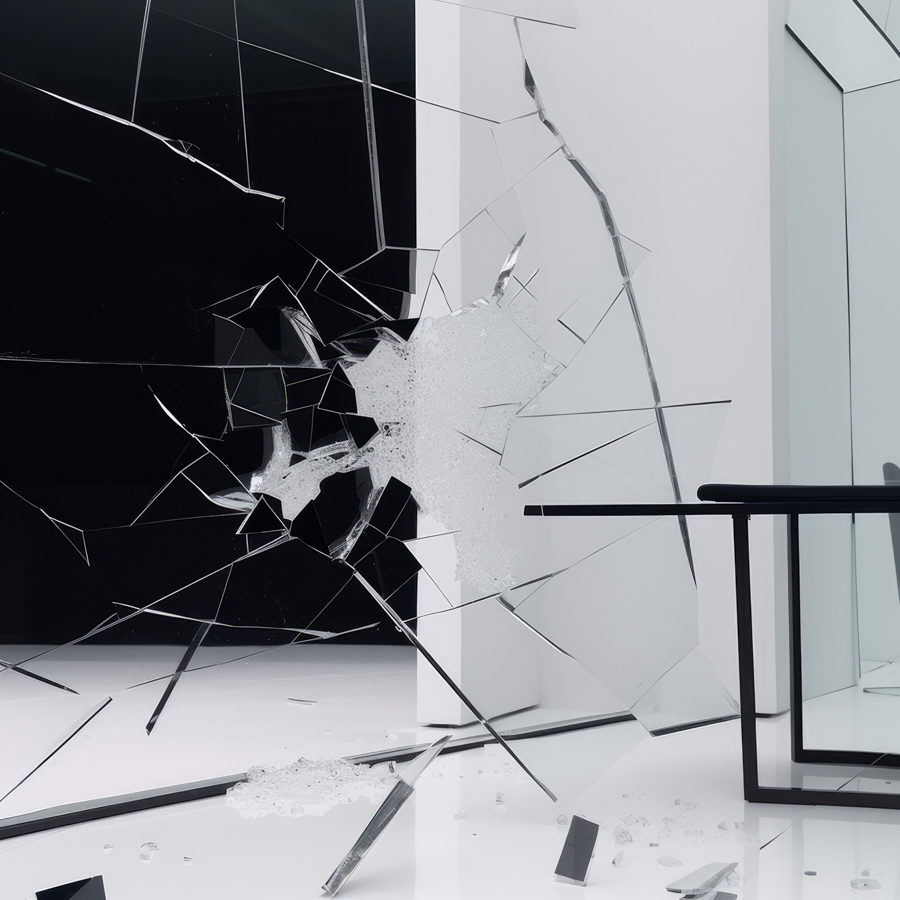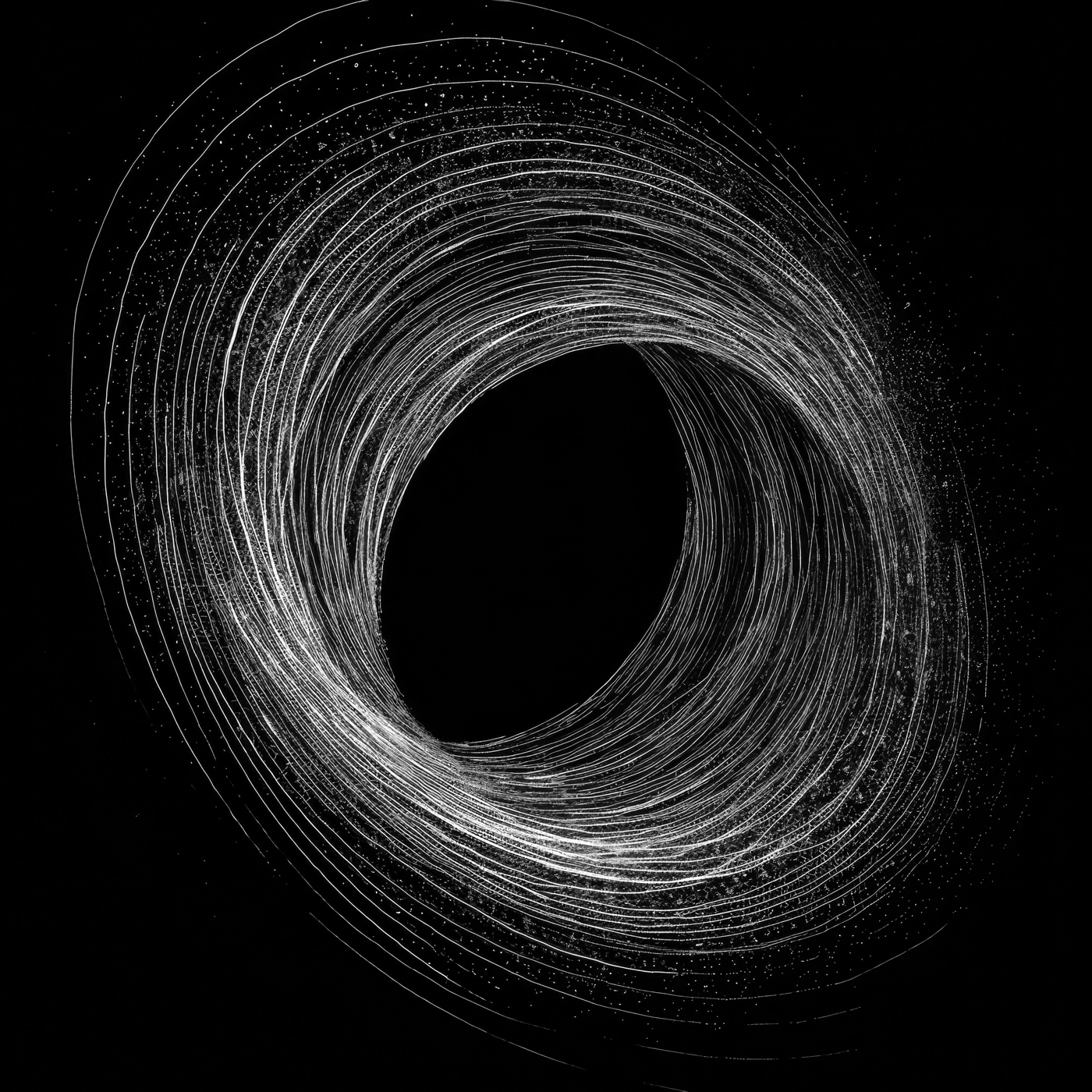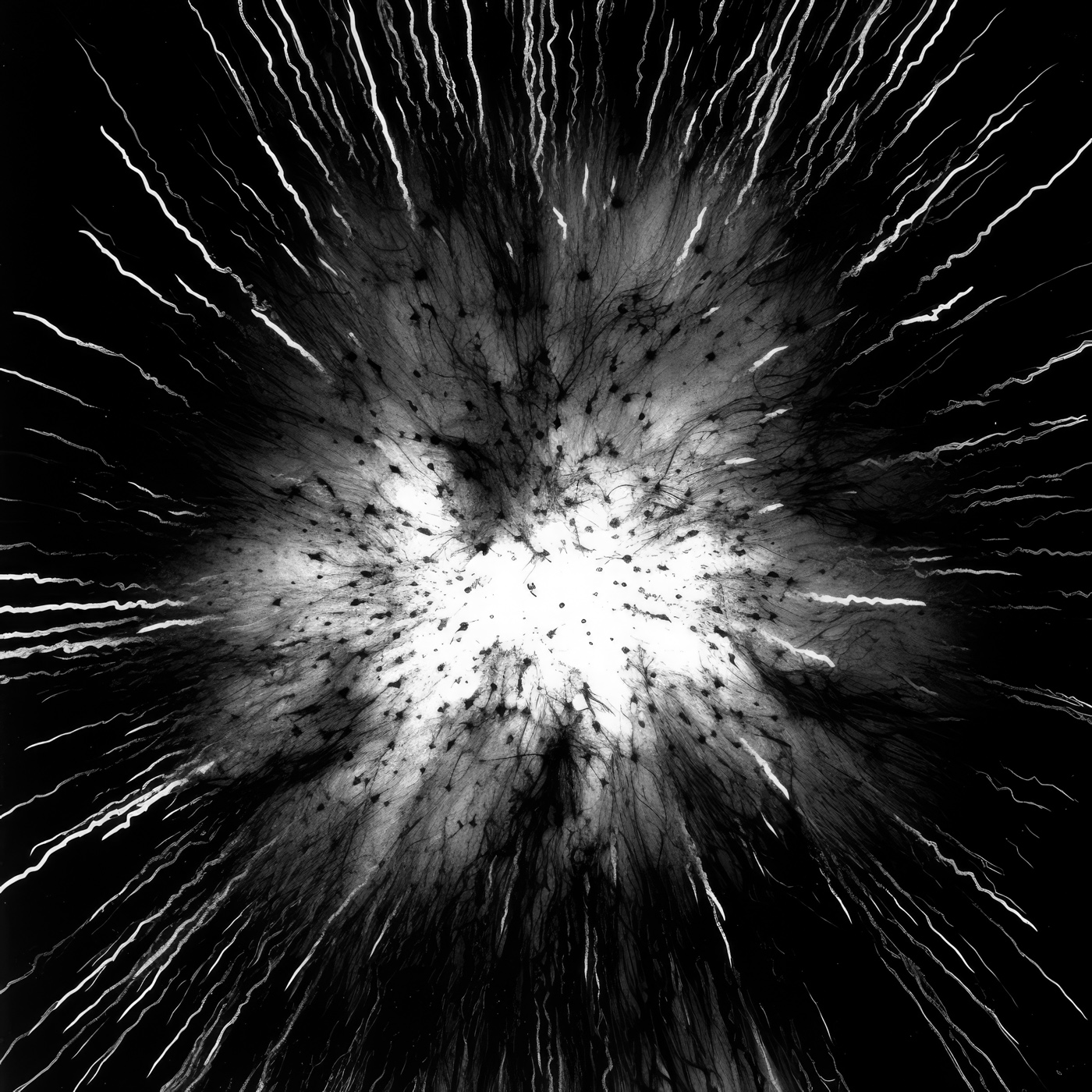THE MACHINE SEEMS
TO NEED A GHOST
A visual essay on the origin, current state and future of generative images
At first
there is random
gaussian
there is random
gaussian
noise, a blank canvas
on which neural networks
pull pixels
in
statistical patterns.
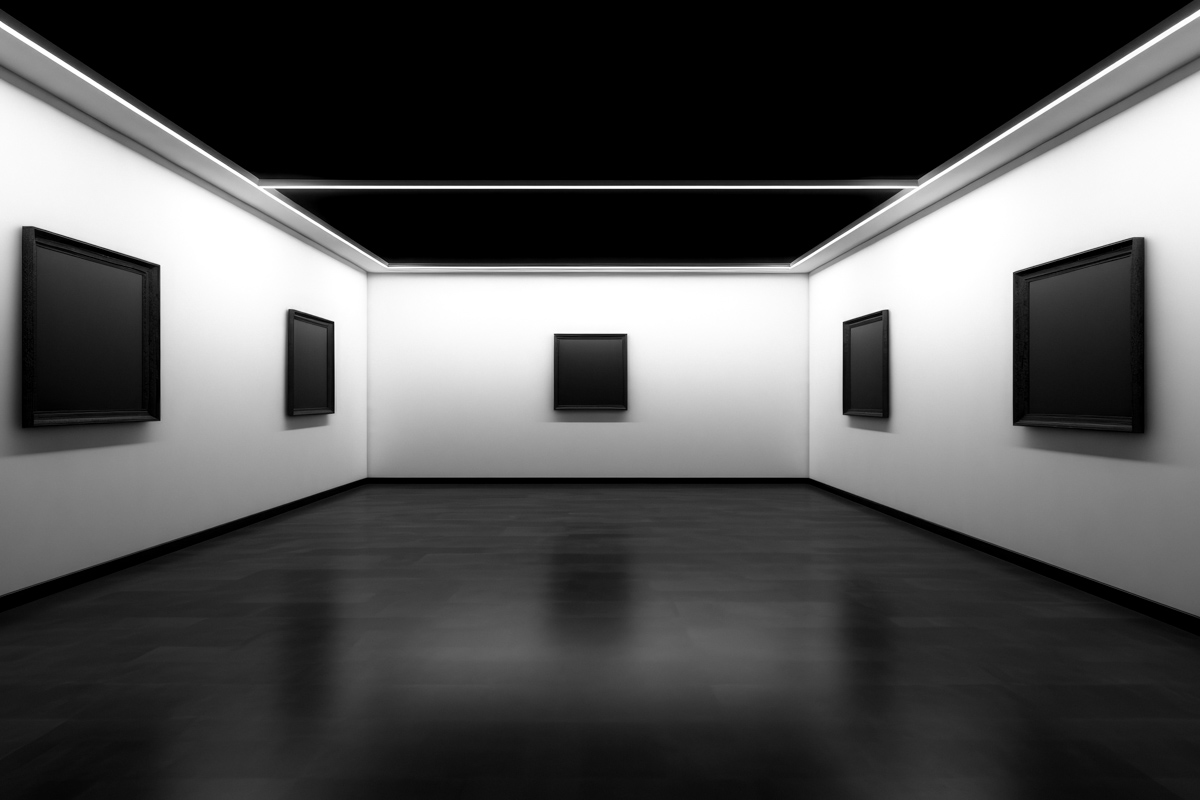
I.
THE GHOST
IN THE
MUSEUM
THE GHOST
IN THE
MUSEUM
The digitization of the analog destabilizes our knowledge of the
“this was”, and we are afraid of this.
But we were afraid of the analog, too: in the first photographs, we saw phantoms.
- Bernard Stiegler, 1995
- Bernard Stiegler, 1995
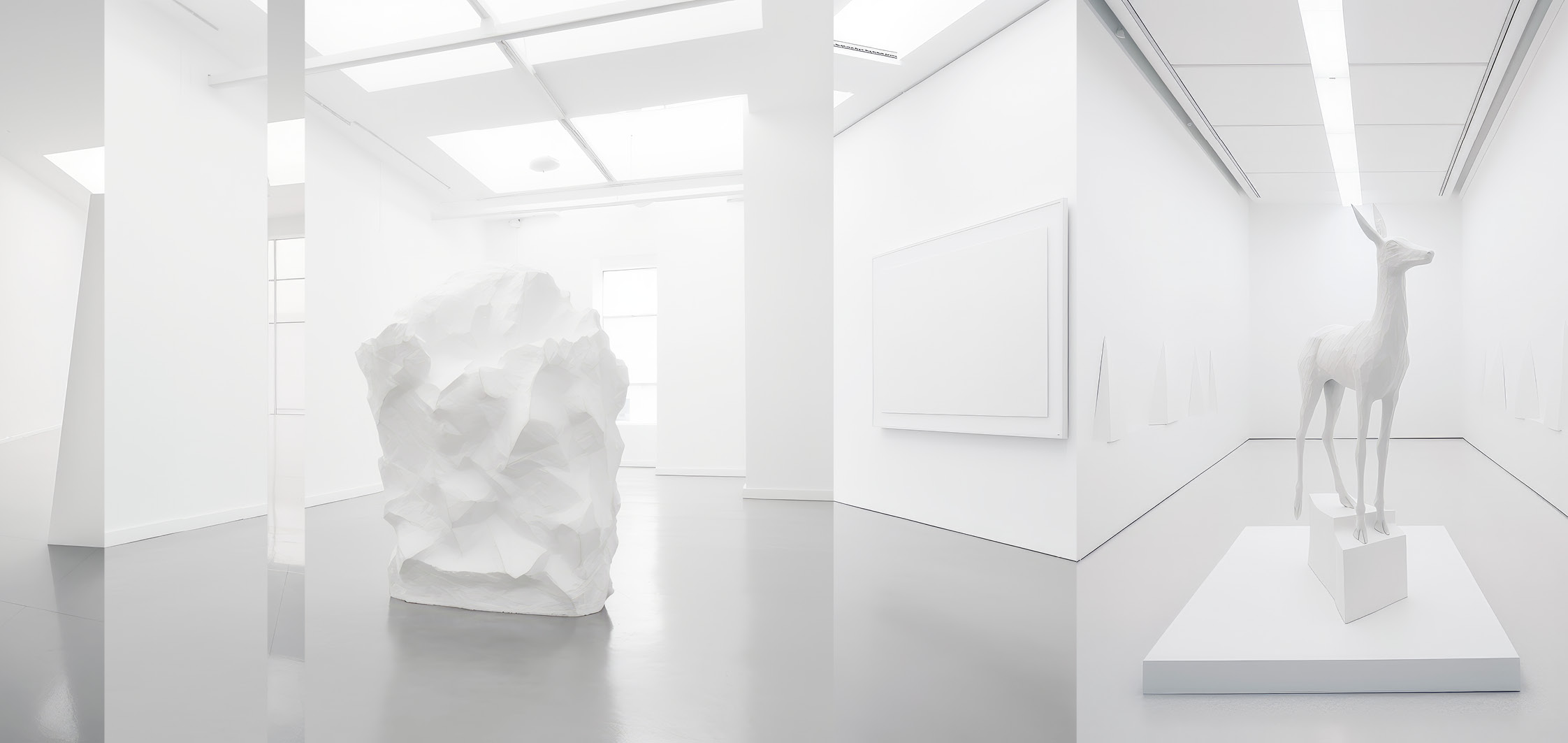
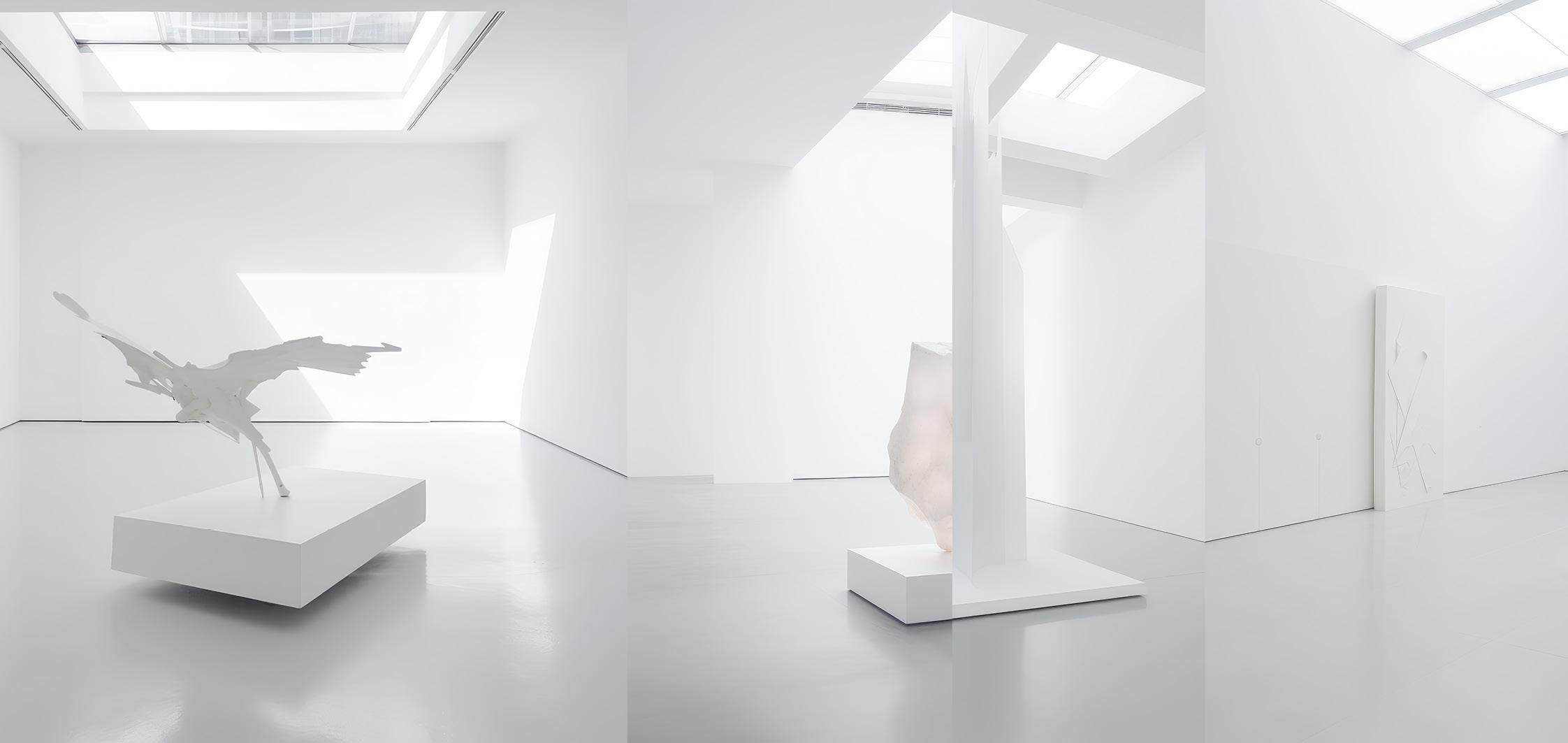
Generative artificial intelligence can
theoretically
create any image, any combination of
pixels
selected from the latent space.
However, in practice, every tool is shaped by specific technical choices and is contrained by the finite dataset of visual culture we feed it. The latent space shrinks into a smaller curated slice of visual possibilities.
Generative images become a haunted museum, a spectral gallery. A cold machine curated by our own existing preconceived notions of art.
Ghosts of past images
linger in the datasets, influencing
and pulling
the noise towards a bygone
visual world.
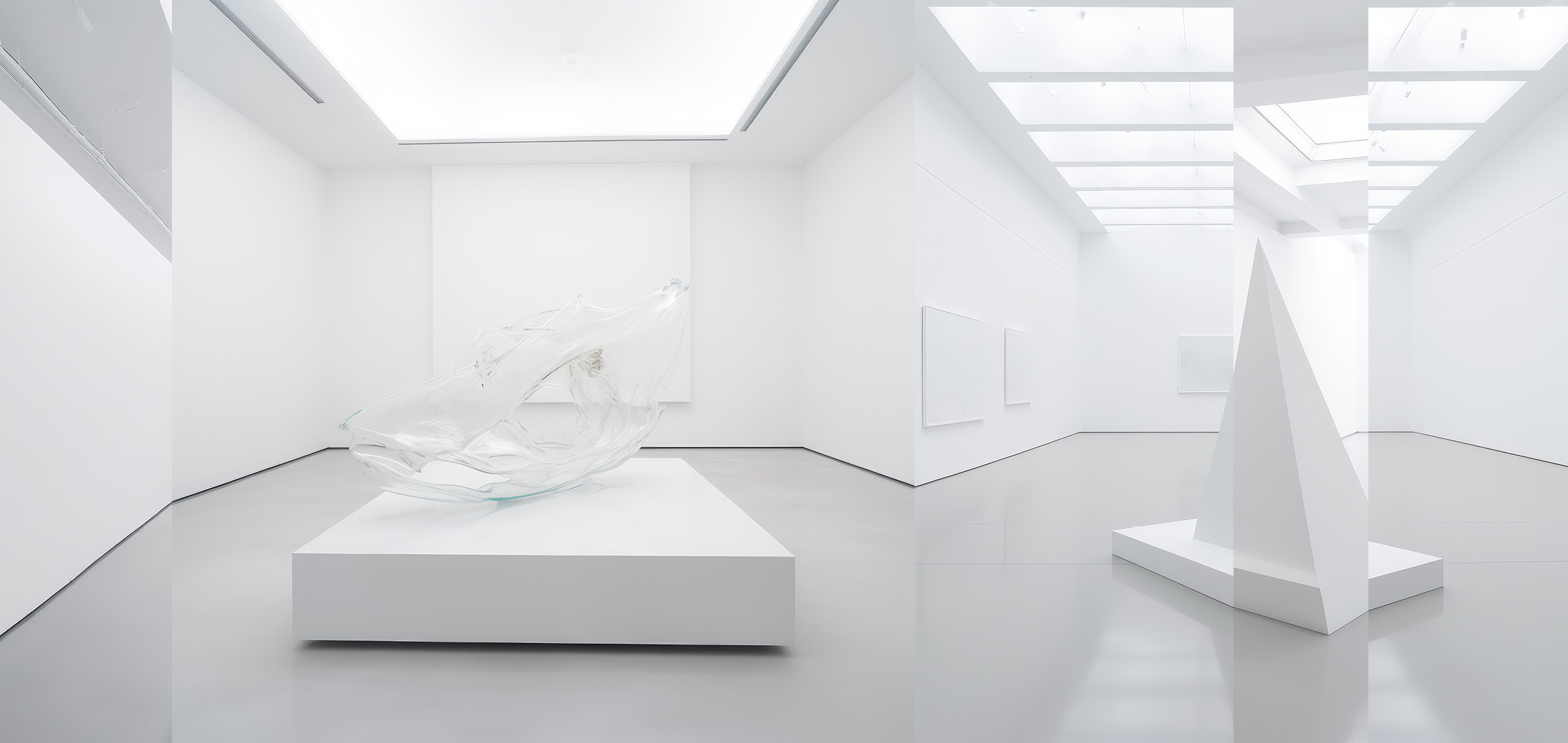
II.
THE MUSEUM
IN THE
MACHINE
THE MUSEUM
IN THE
MACHINE
Generative images are being produced at an ever increasing rate. They are posted online, spreading across websites, blogs, social media, gradually becoming part of our visual culture.
Artificial intelligence tools will be trained on artificial images and soon be subsumed by a majority of their own creations. The feedback loop will repeat again and again the clichés of our visual world. Biases we created will amplify their influence, stereotypes will set deep roots until synthetic images will be unable to escape these forces.
We will continue to digitally industrialize our way of seeing the world, and slowly trap it in nostalgic representations of the past.

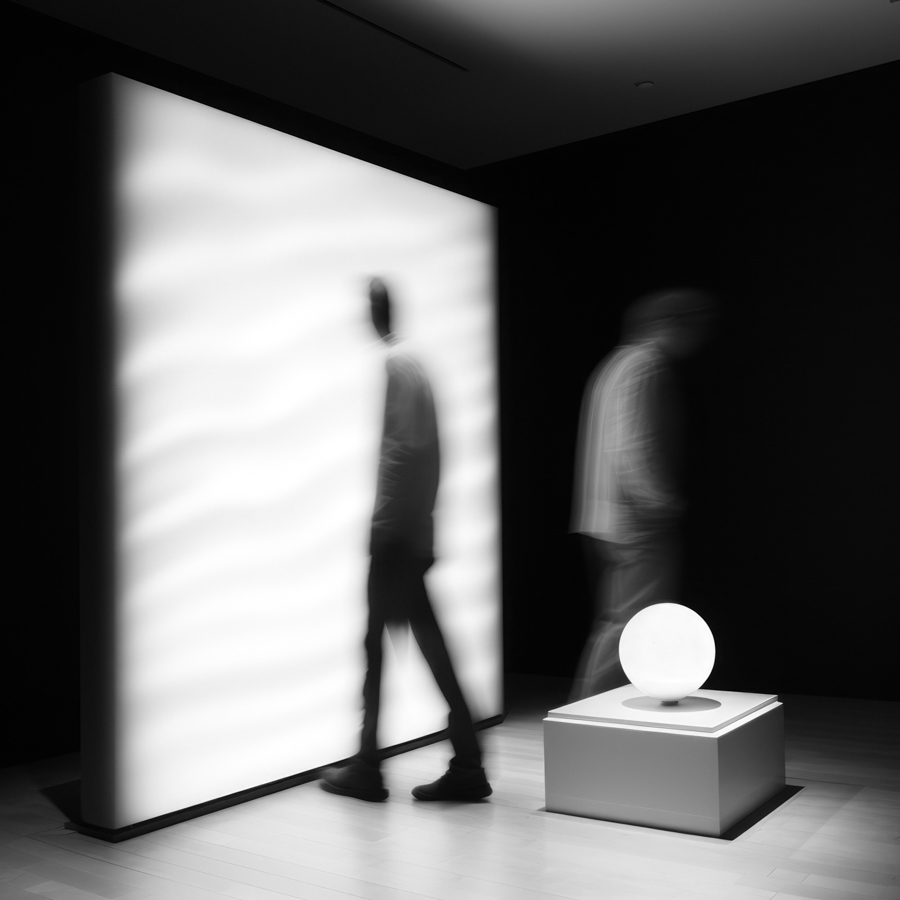
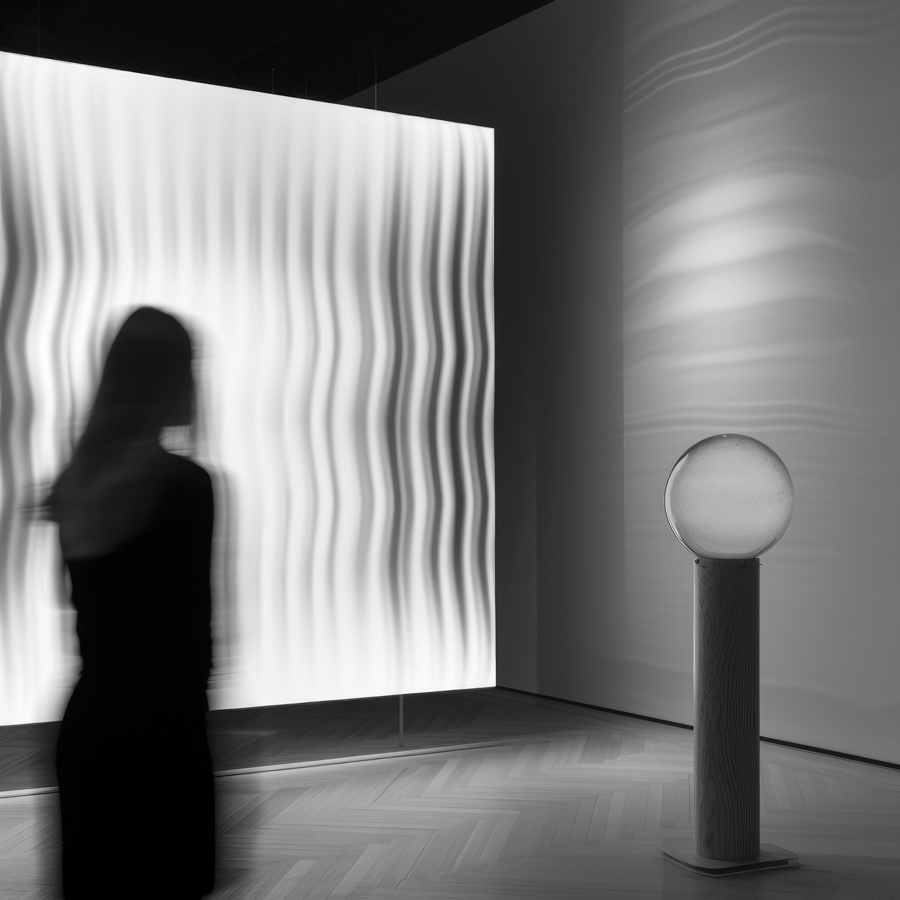

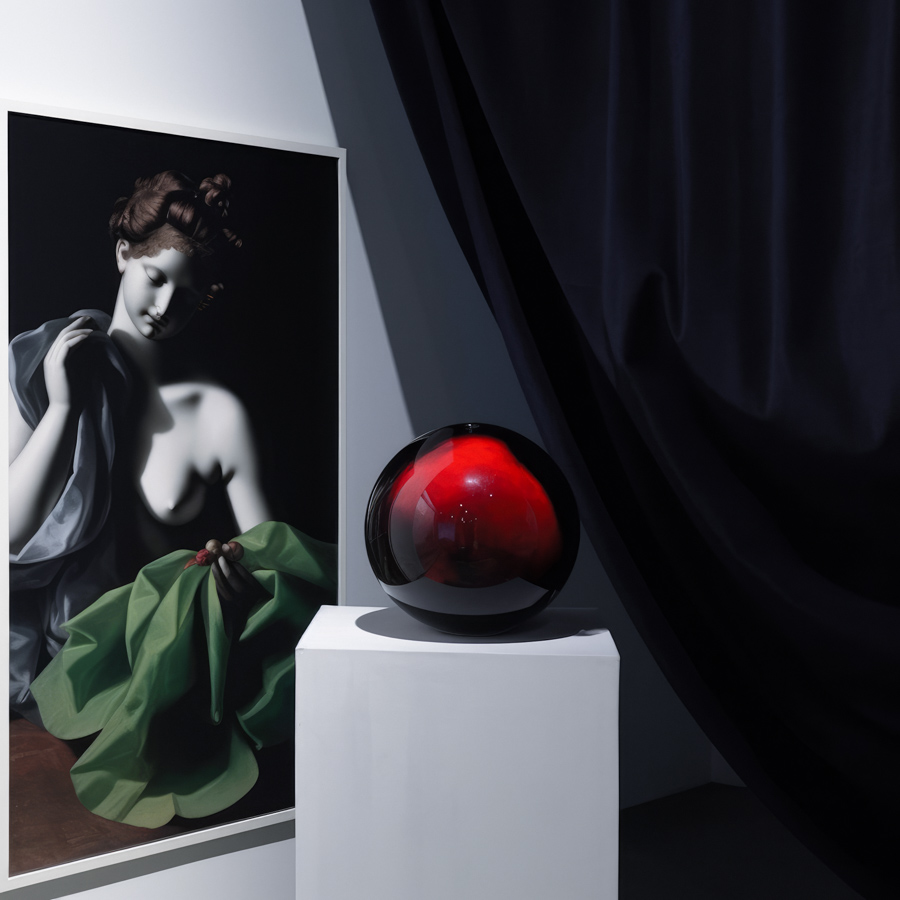
"When we talk about artificial intelligence, we rely on metaphor, as we always do when dealing with something new and unfamiliar.
Metaphors are, by their nature, imperfect, but we still need to choose them carefully,because bad ones can lead us astray."
- Ted Chiang, 2023
- Ted Chiang, 2023
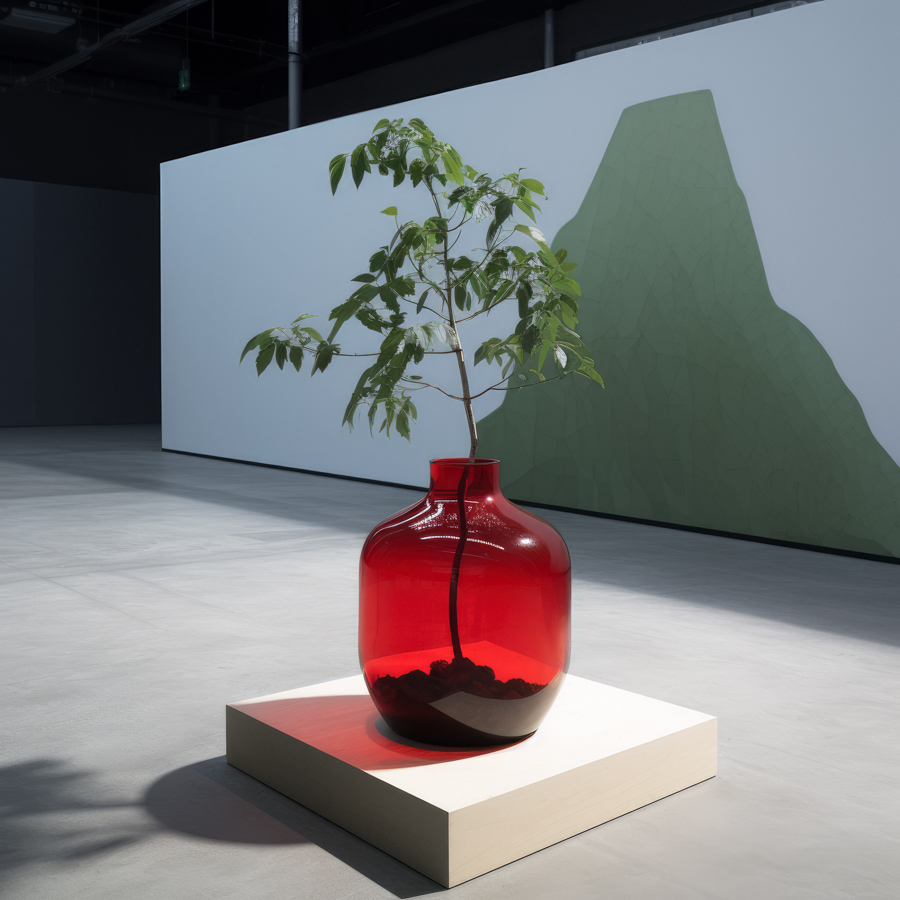


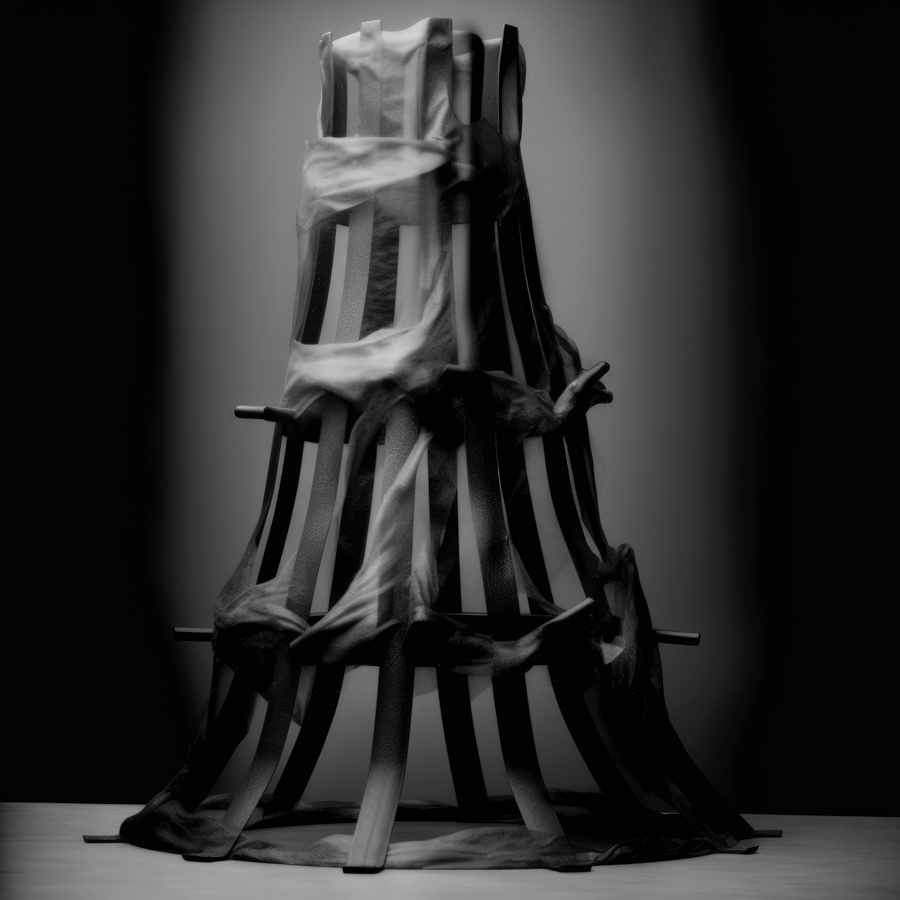
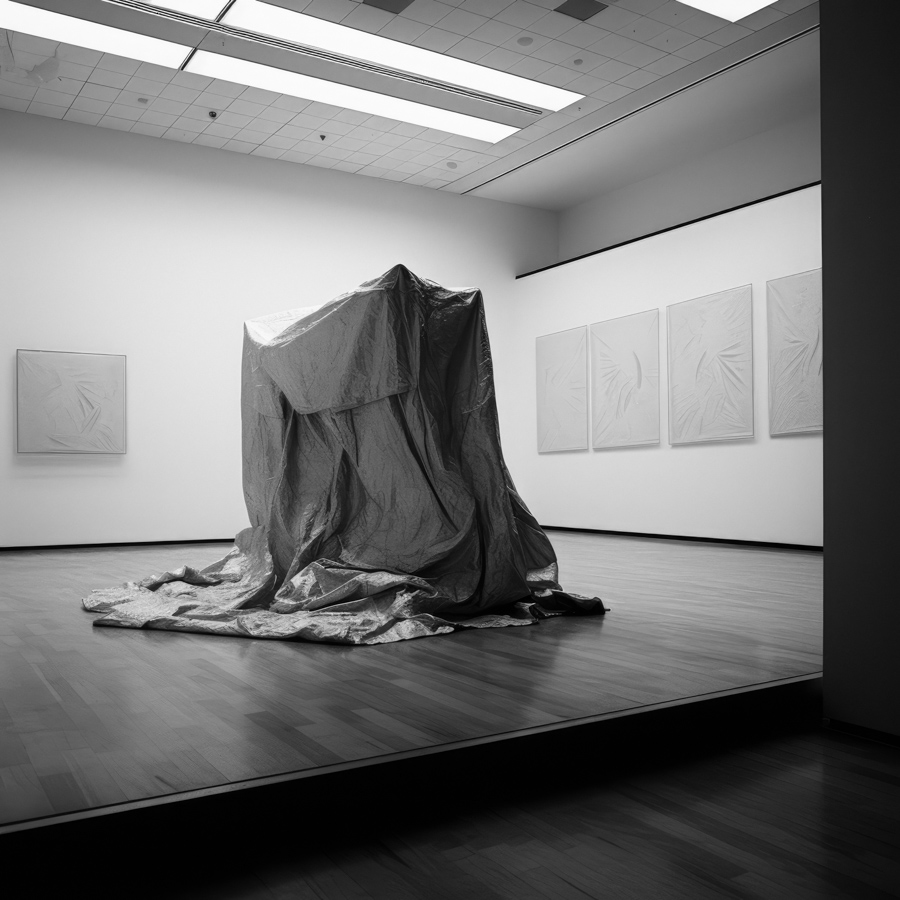
"The virtualization of space and time, the possibility of virtual events whose movement and speed
prohibit us more than ever from opposing presence to its representation, “real time” to “deferred time,”
effectivity to its simulacrum, the living to the non-living, in short, the living to the living-dead of its ghosts."
- Jacques Derrida, 1993
- Jacques Derrida, 1993
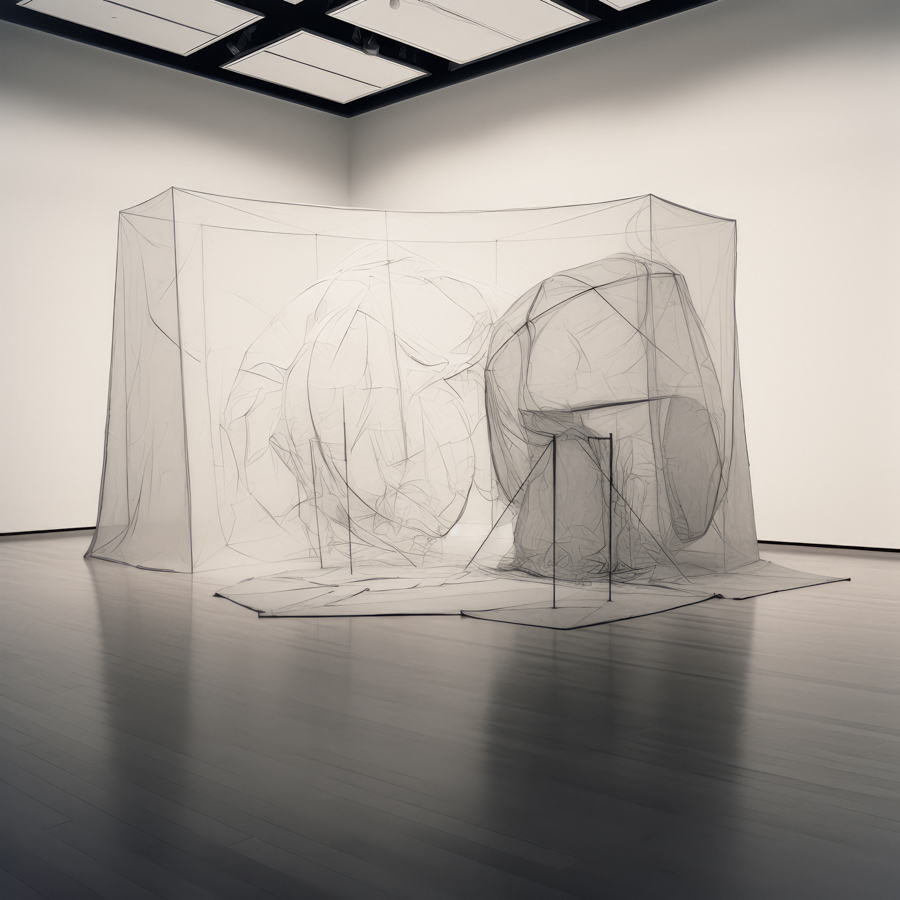
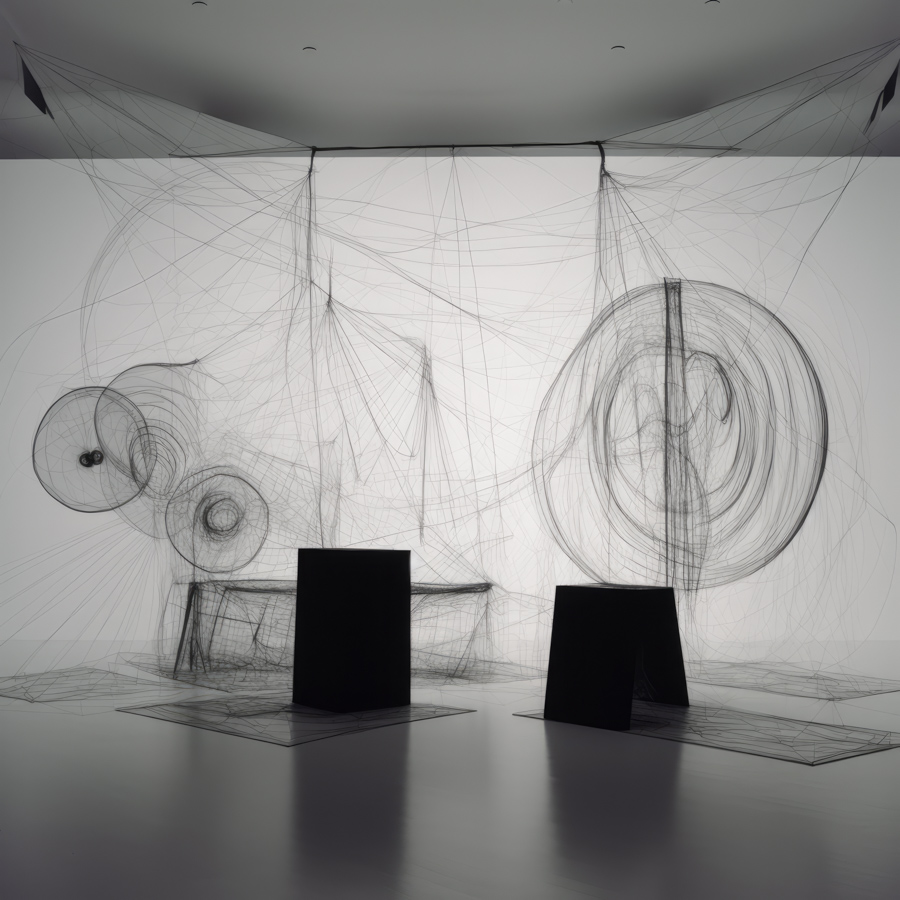
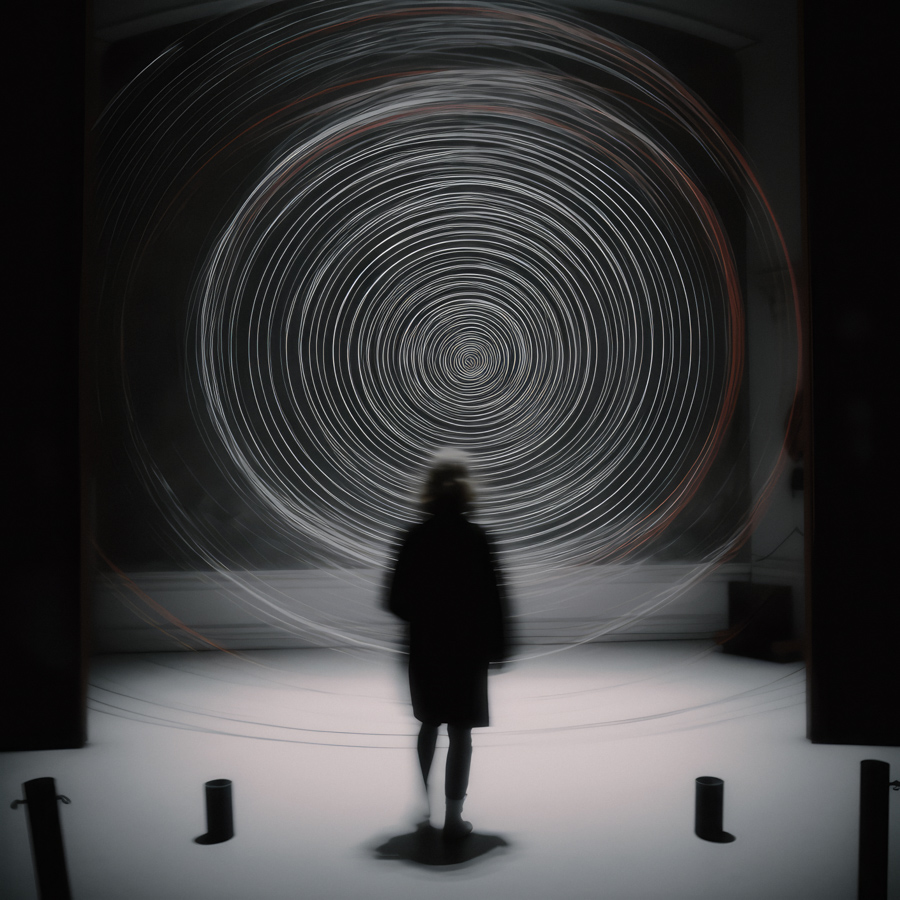
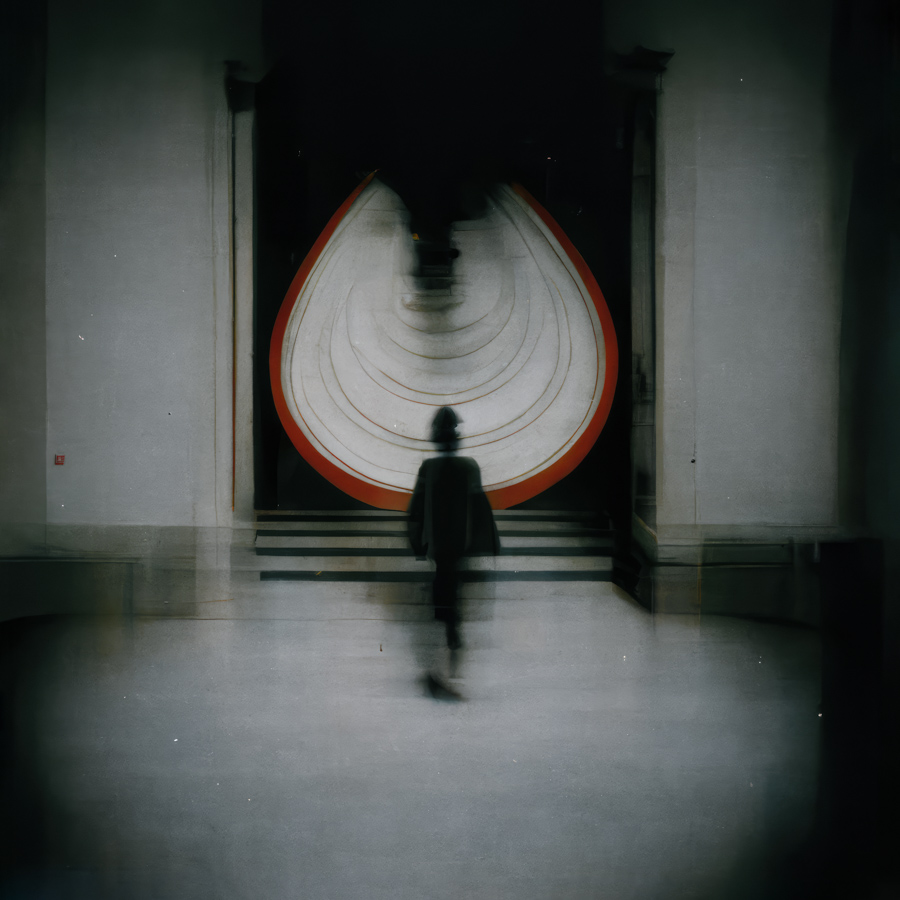
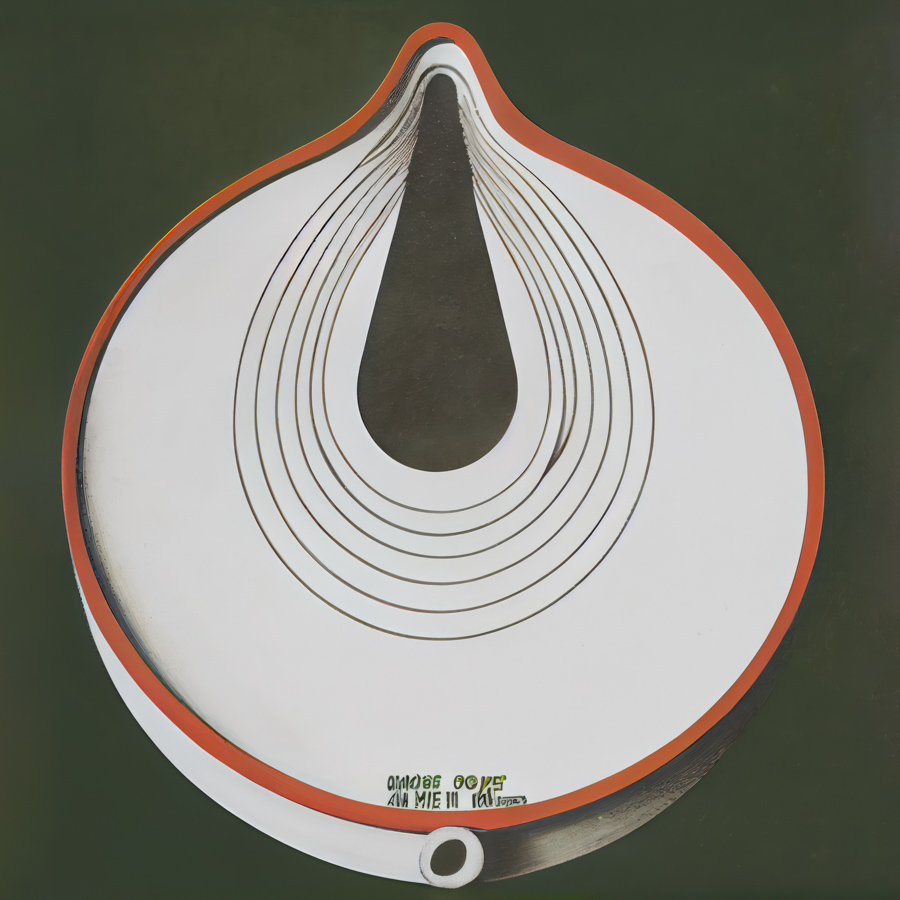
"Just because something is current doesn’t mean it is new."
- Mark Fisher, 2006
- Mark Fisher, 2006
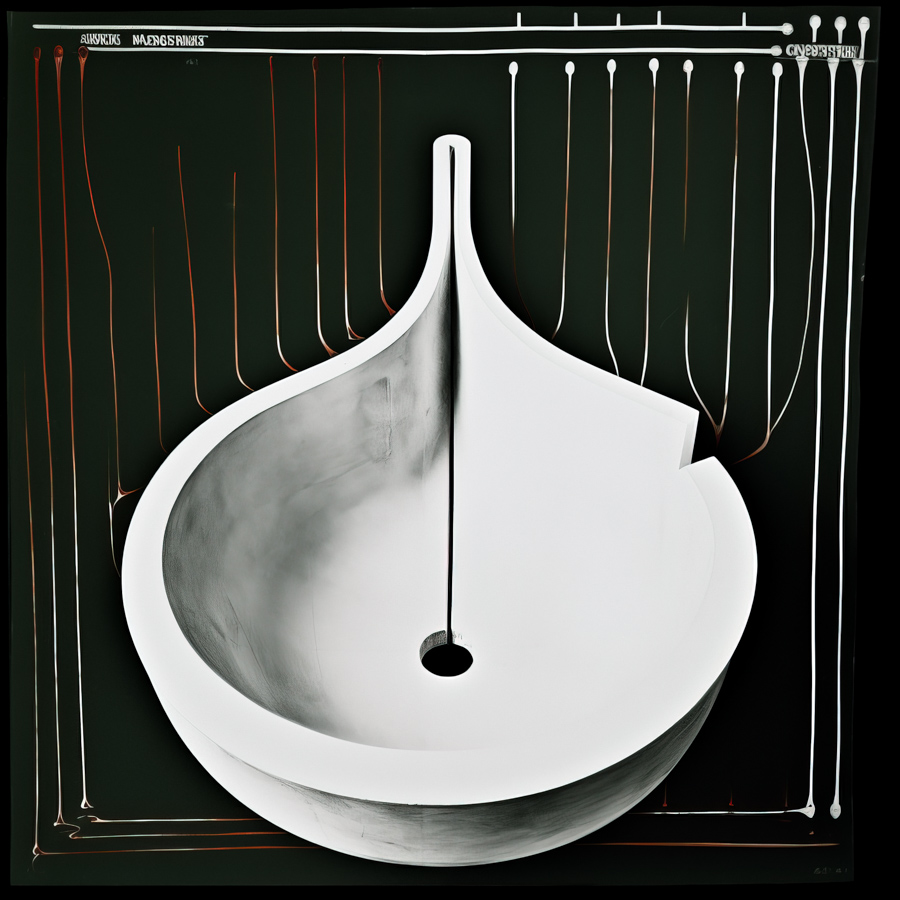
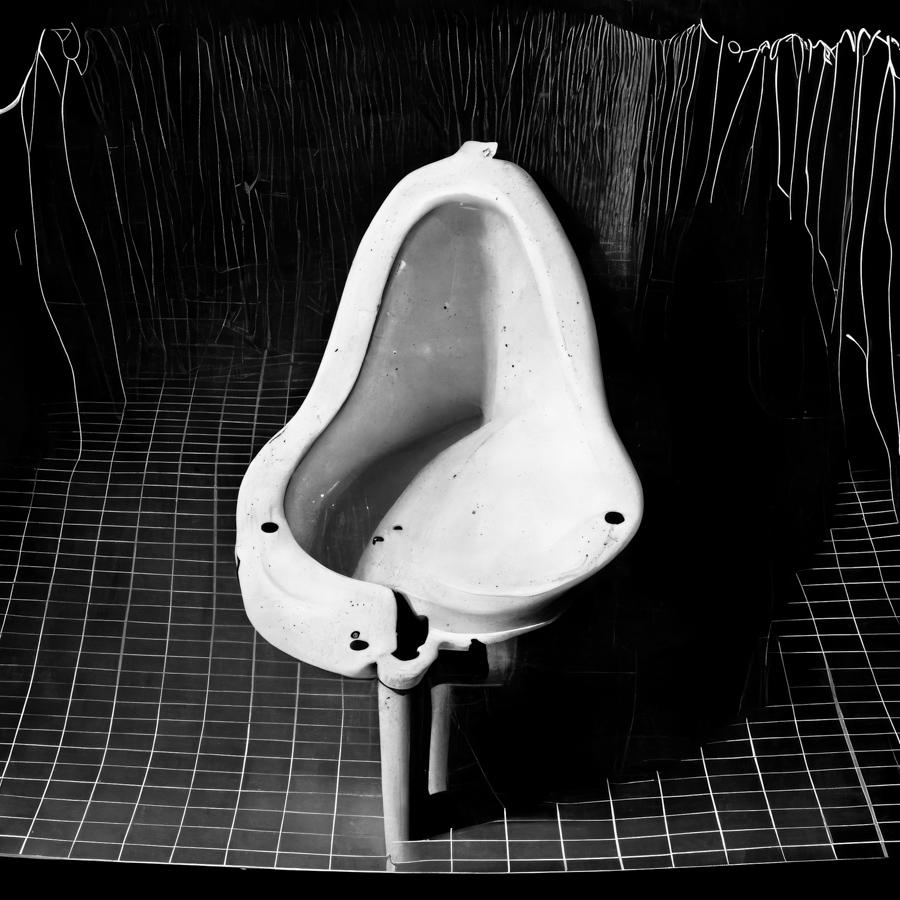
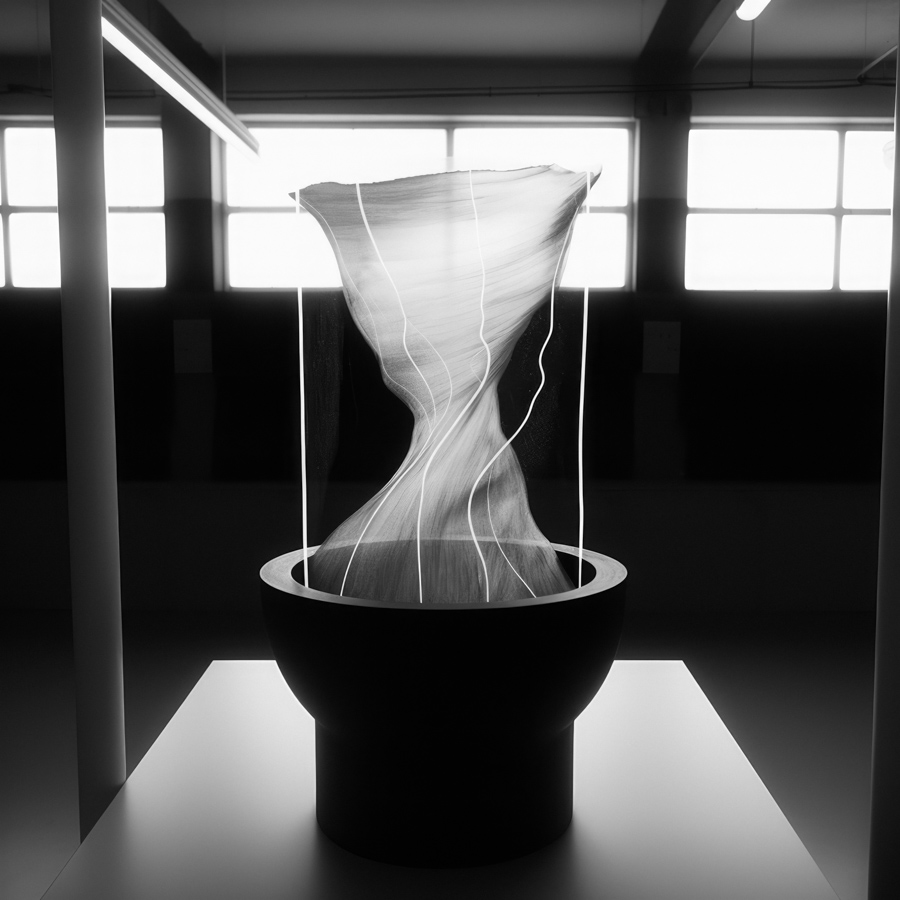
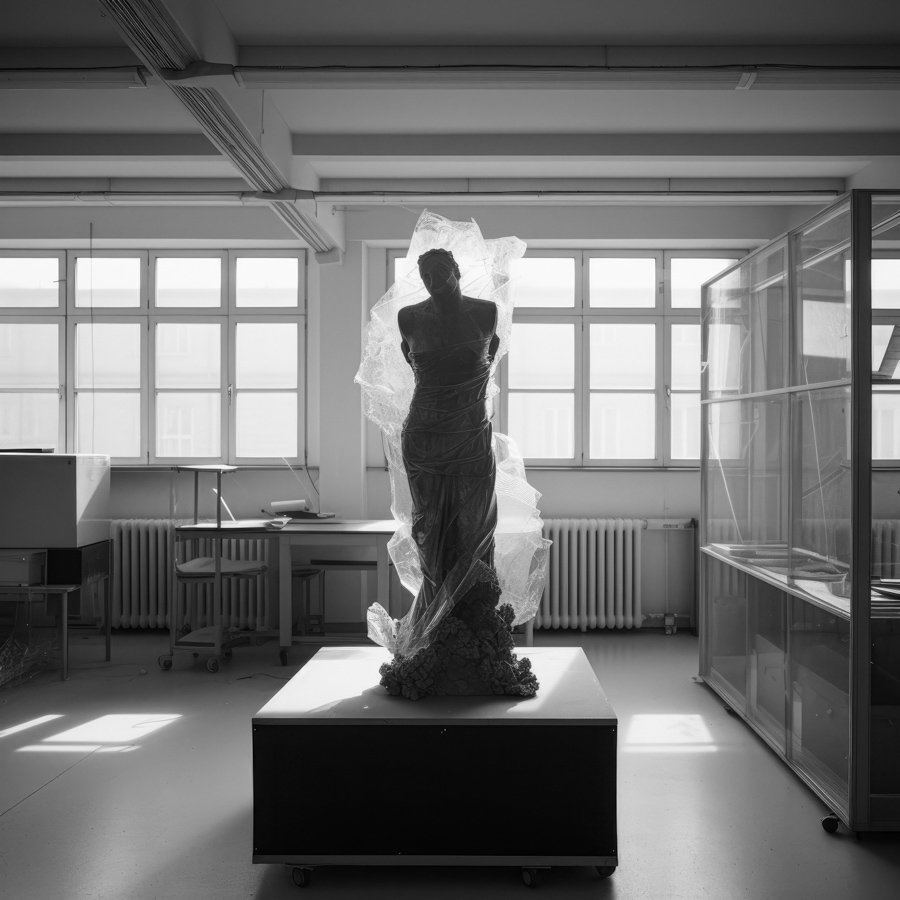
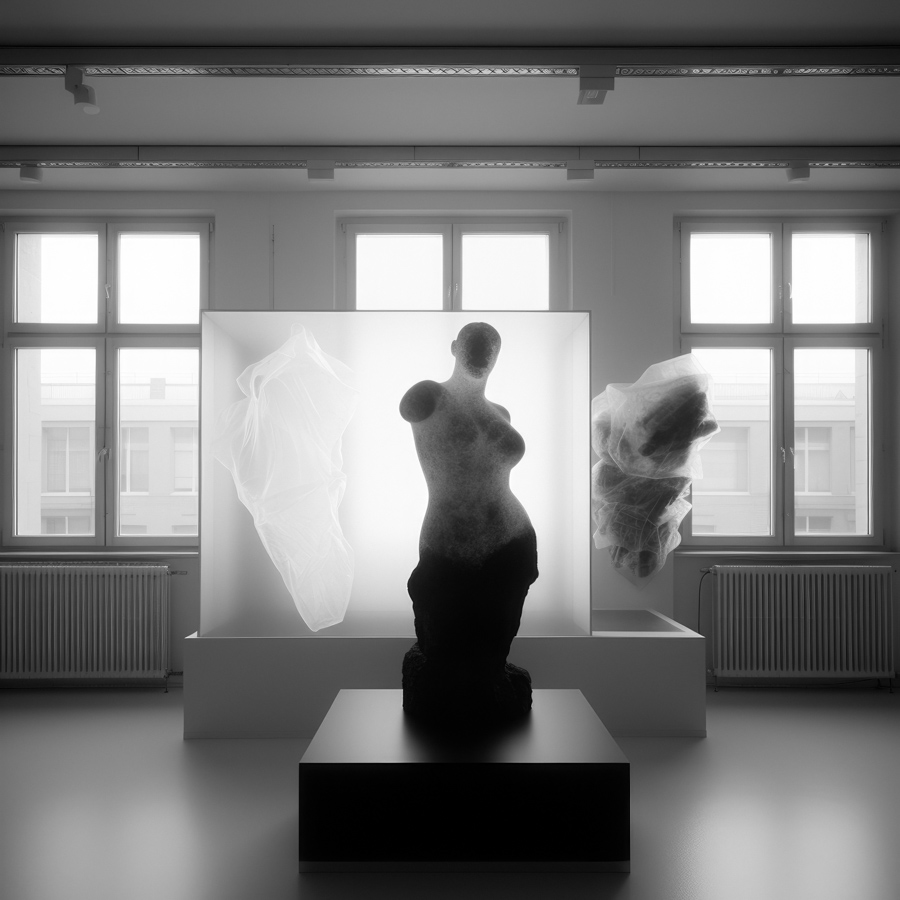
"You know exactly what I think about
photography. I would like to see
it make people despise painting until
something else will make photography unbearable."
- Duchamp, 1922
- Duchamp, 1922
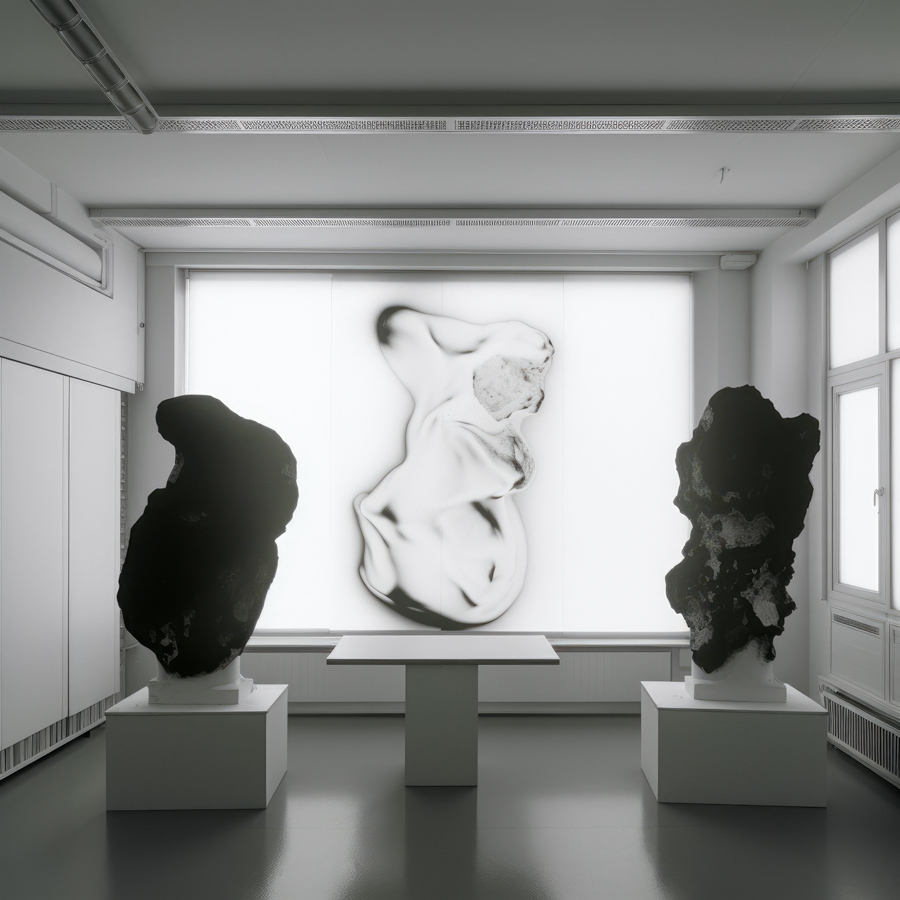
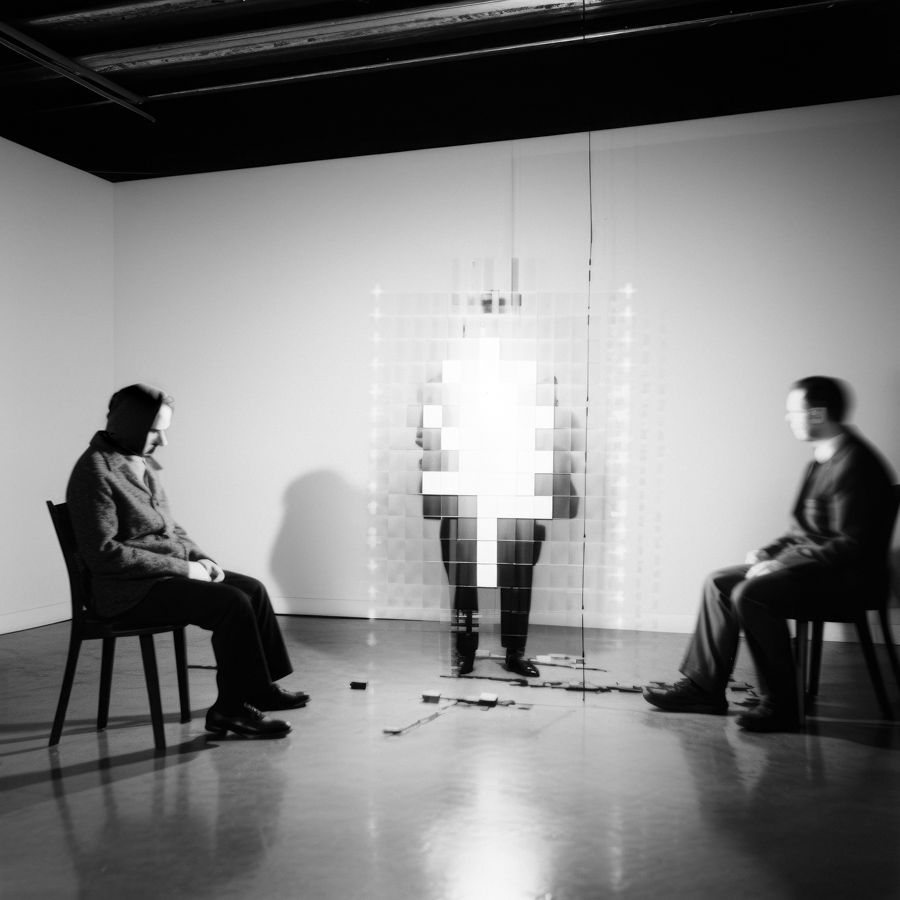

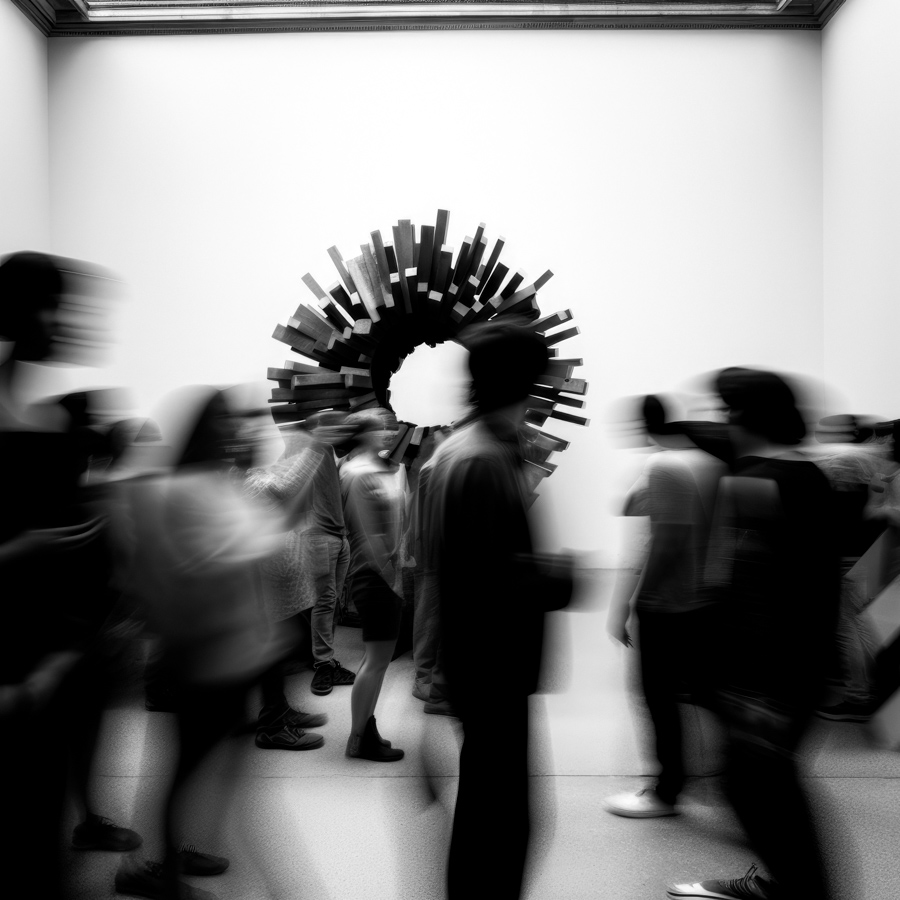
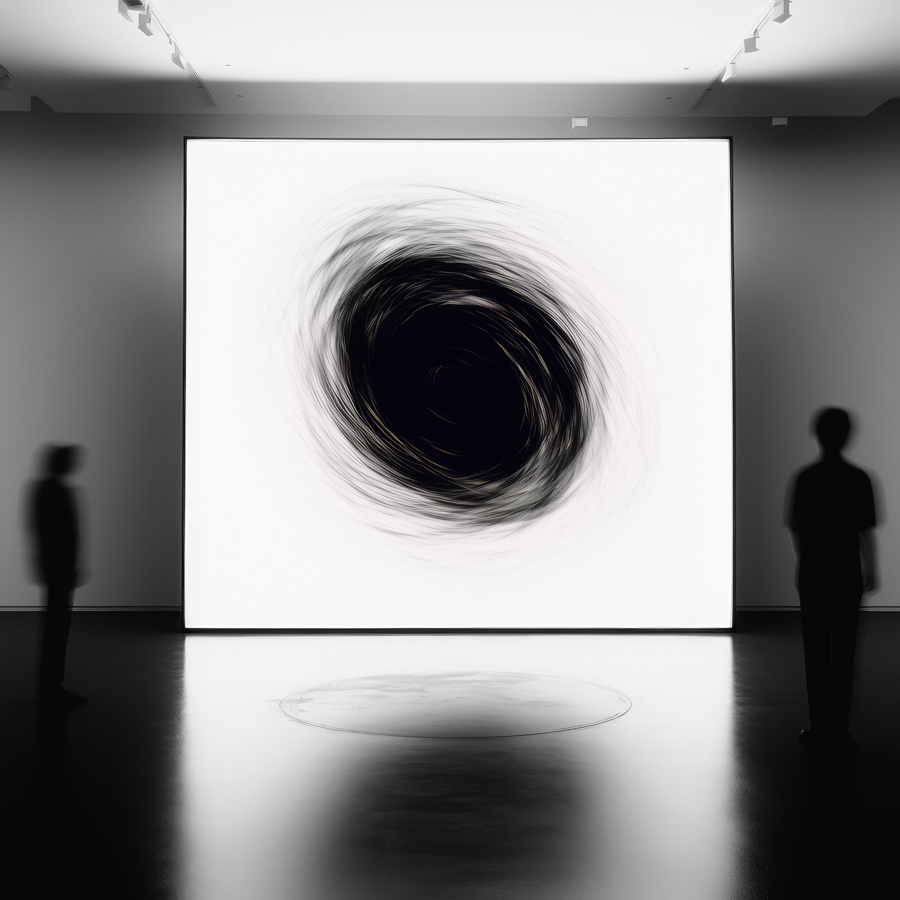
"Sadly, the Future is no longer what is was"
- Leyland Kirby, 2009
- Leyland Kirby, 2009
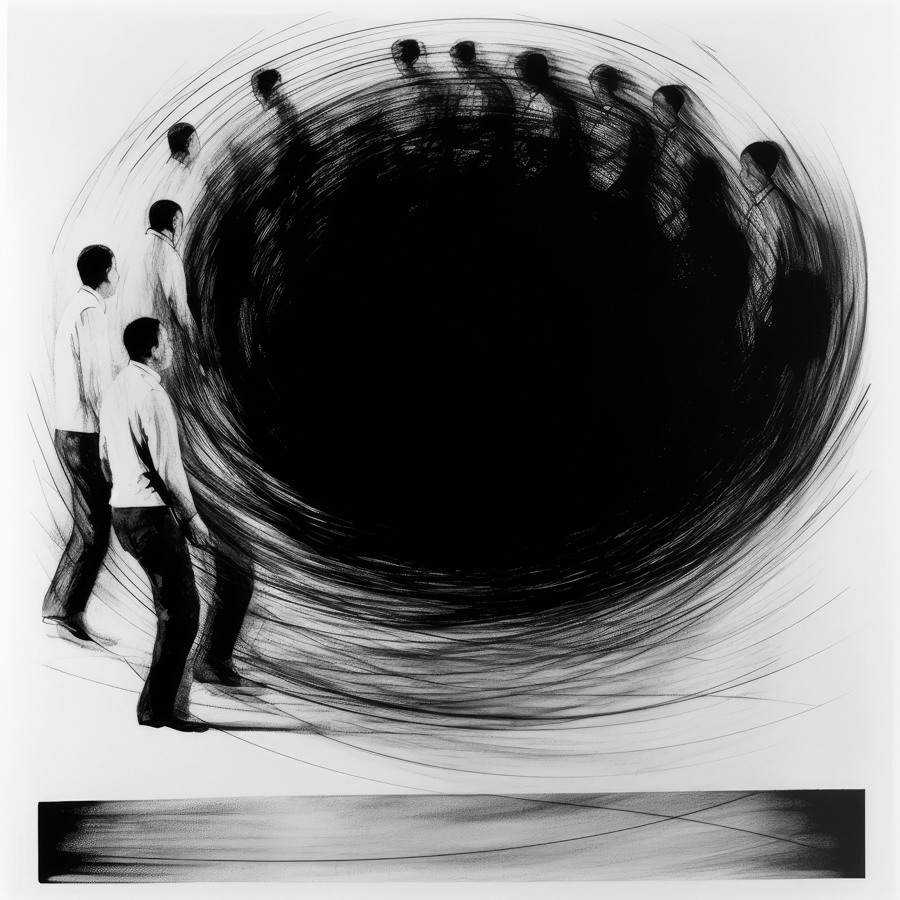
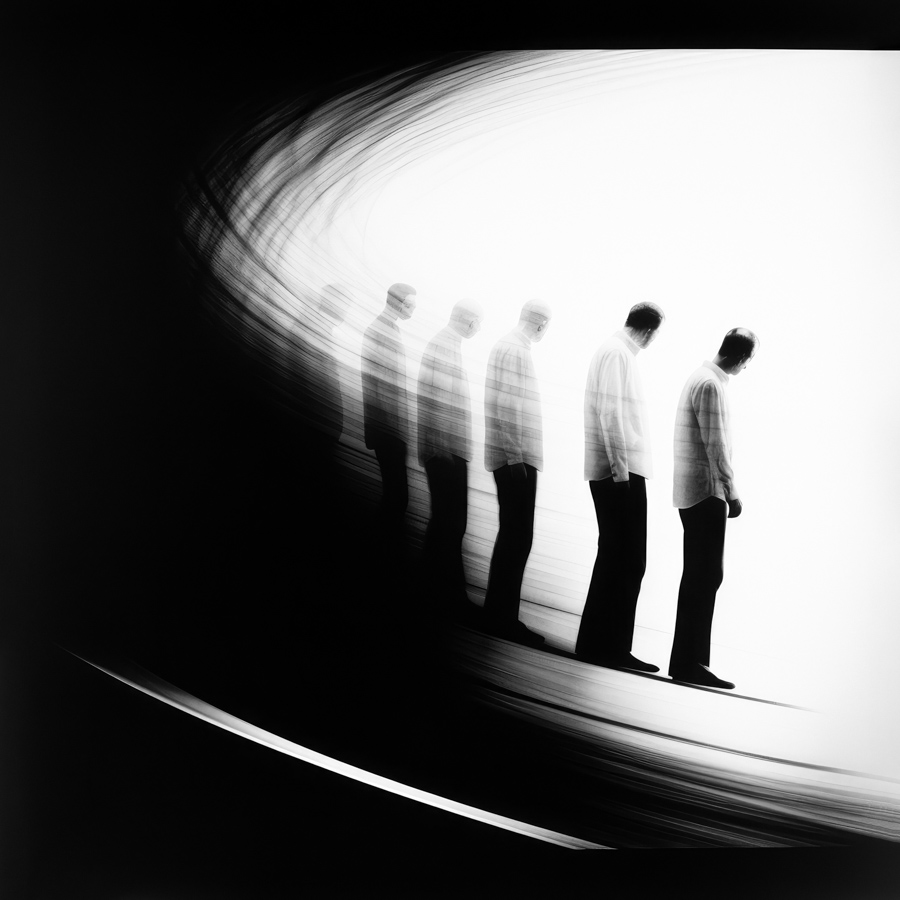

III.
THE MACHINE
IN THE
BLACK HOLE
THE MACHINE
IN THE
BLACK HOLE
As automation and industrialization take hold of every aspect of our lives, jobs are destroyed, climate change looms over an inescapable future, and culture proliferates in a ceaseless, self-referential cycle of nostalgia.
As the loop gets stronger, images swirl along the event horizon, gravitational ghosts attract the spectrums of potential pixels into a more and more dense and limited space. Synthetic images generated by artificial intelligence will cement all our clichés, biases and stereotypes in a single dense black hole.
But these new artificial intelligence tools are also agents of chaos. For AI, there is never a correct answer, only a probable one. And sometimes, through the improbable, a new path emerges. Randomness, hallucinations, errors - these perceived shortcomings of AI could also be a statistical emulation of humanity and creativity.
As a black hole aborbs all and engulfs light itself, structures loop around the collapsing star, matter stretchs until atoms come apart, all is obliterated and travels past the event horizon.
However, beyond that, no one knows what might emerge on the other end.
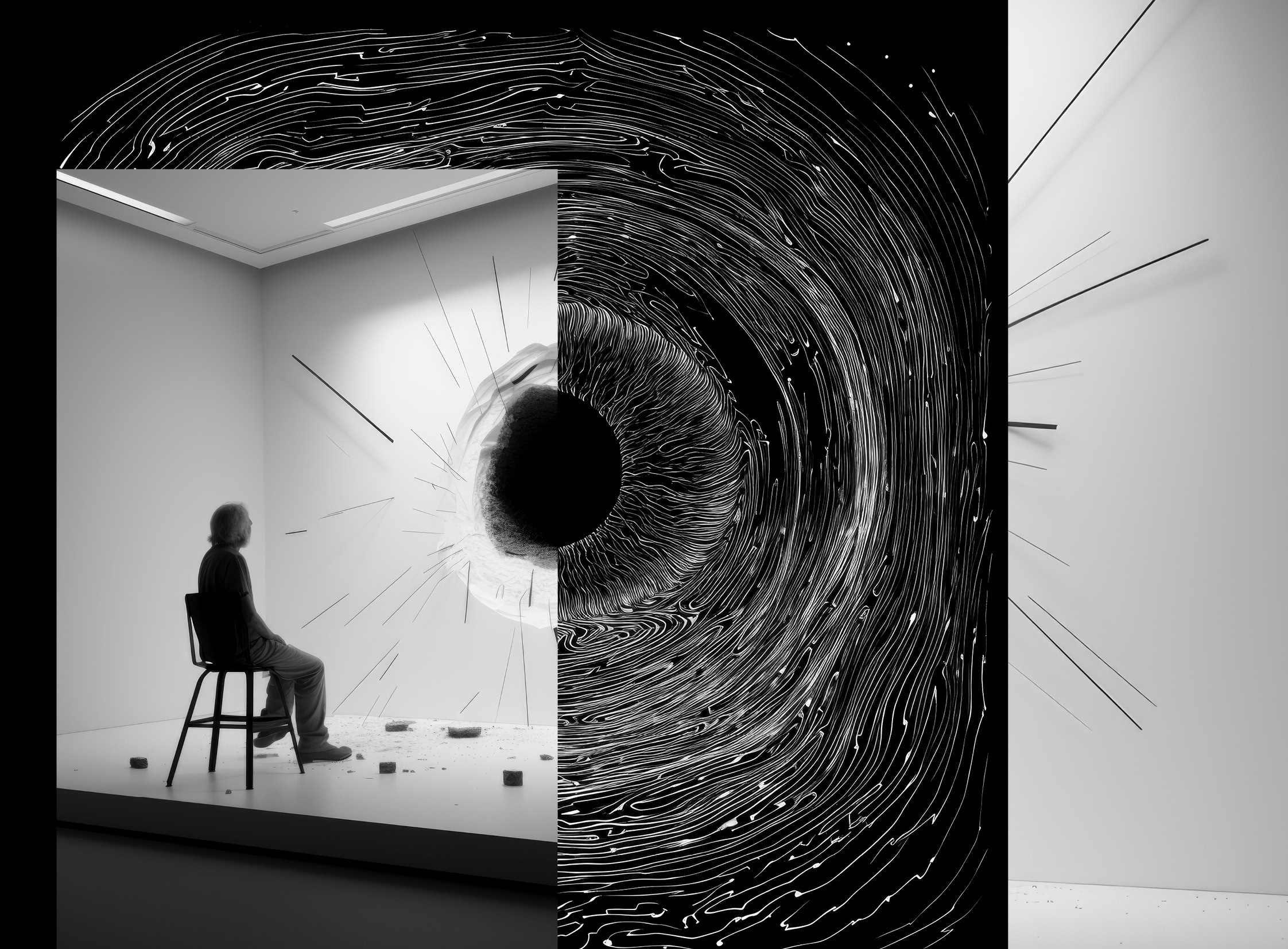
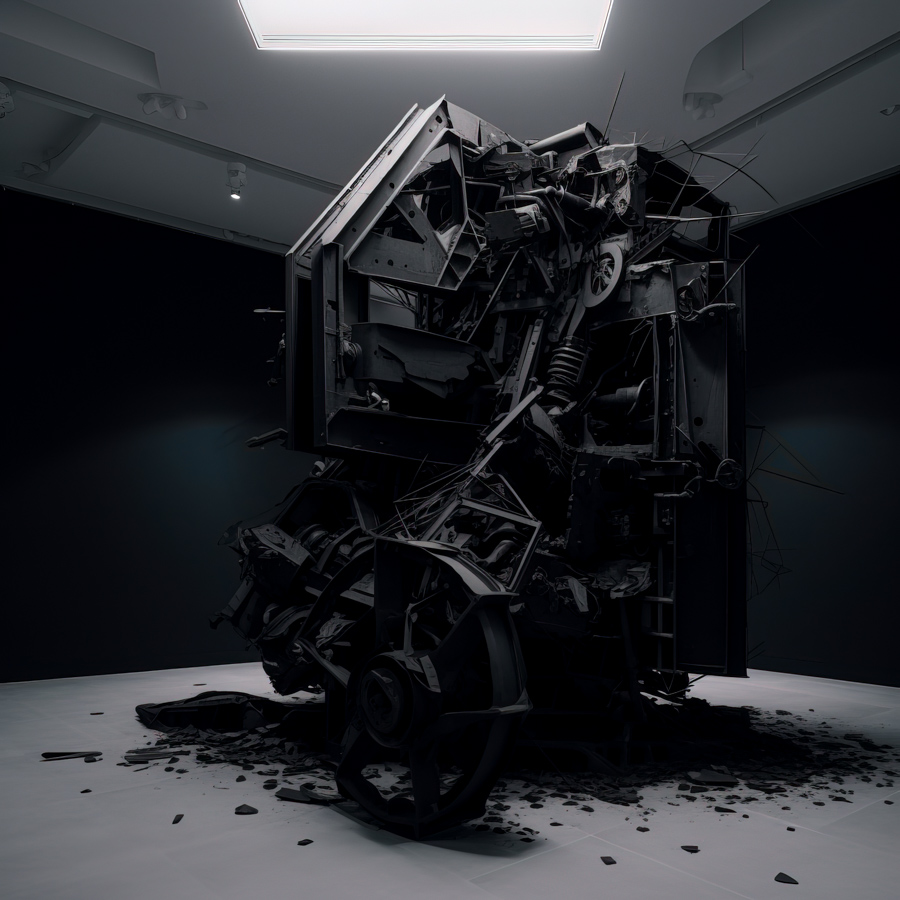
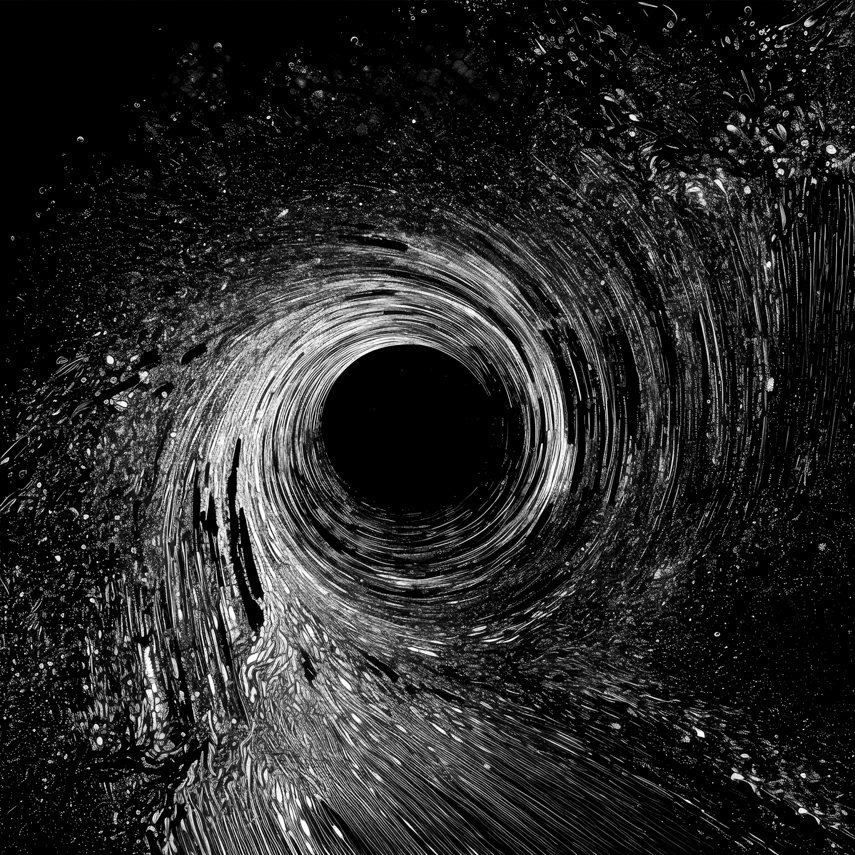
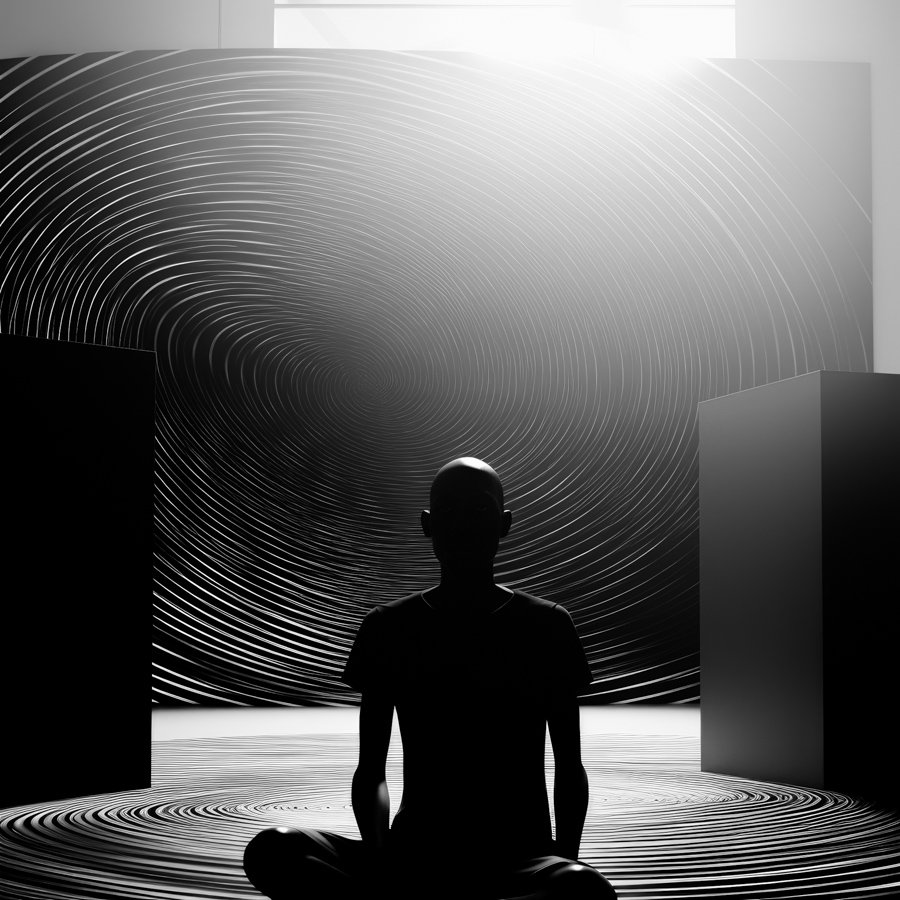
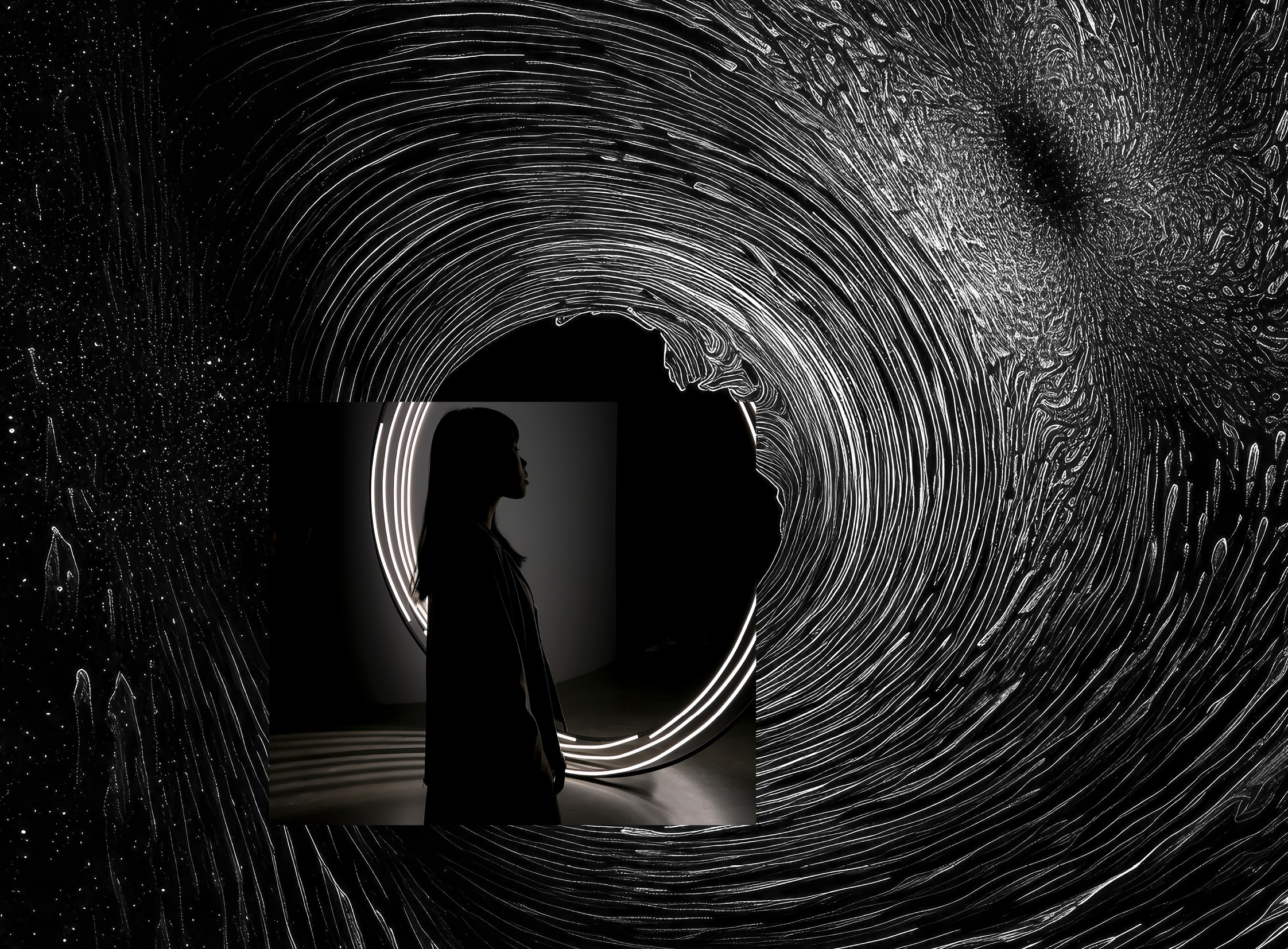
"The world will end. The only reason,
for which it could last longer,
is because it exists."
- Charles Baudelaire, 1867
- Charles Baudelaire, 1867
